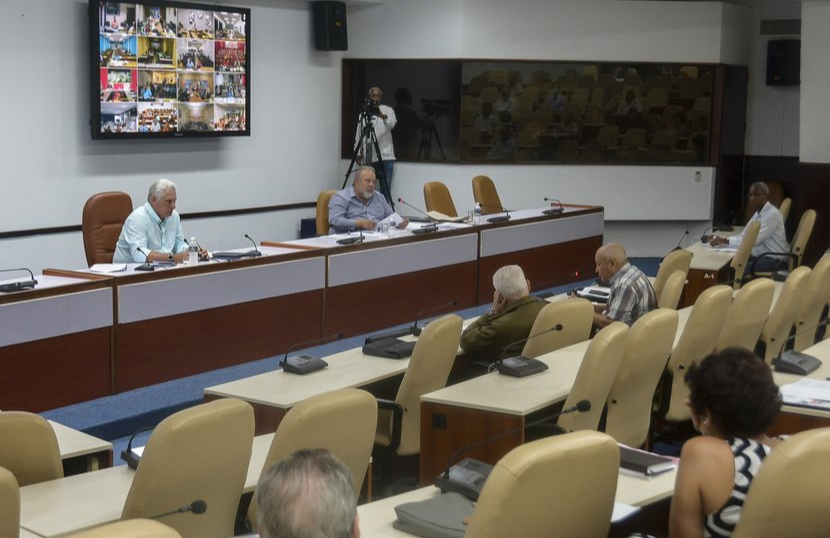
Havana, September 13 (RHC)-- Priority issues in Cuba were discussed on Monday at a meeting headed by President Miguel Díaz-Canel with the governors of all the country's provinces.
At the Palace of the Revolution meeting, Prime Minister Manuel Marrero discussed the upcoming referendum on September 25, in which electors will vote for the approval or rejection of the Family Code, a law considered of extraordinary importance for the development of society.
The Prime Minister insisted on efficient preparations for this consultation, for which a dynamic test is scheduled for next Sunday at the national level to check the availability of resources and organizational mechanisms.
For his part, the Minister of Justice, Oscar Manuel Silveira, reiterated the Cuban authorities' assessment of the Code as a legal text that adjusts to the characteristics of Cuban society today and promotes the rights of all persons based on relations of solidarity and affection within the framework of the family.
Meanwhile, Alina Balseiro, president of the National Electoral Council, which is in charge of carrying out the referendum, referred to the preparations and described as positive the results of a dynamic test carried out last Sunday in all the diplomatic headquarters of the country.
She recalled that embassy personnel and Cubans on missions abroad will vote on Sunday the 18th.
At the meeting, the governors discussed other top priority issues, such as the upcoming entry into force of the Food Sovereignty and Food and Nutritional Security Law (SSAN Law), approved last May by the ANPP.
We have to move towards fewer food imports to meet our needs with what we can produce with science, innovation, and agroecological practices stressed Díaz-Canel Bermúdez.
The September meeting of the country's leadership with the governors and the intendant of the Isle of Youth also analyzed the improvement of the systems and organization of the inspectorates in the territories, the organizational changes in the provincial and municipal government structures, and the fulfillment of the housing program.

